Ukrainian President Volodymyr Zelenskyy said Tuesday he regretted last week’s tense Oval Office encounter with Donald Trump and emphasized his willingness to “make things right,” stating that Kyiv is prepared to engage in peace negotiations as soon as possible.
In a statement issued a day after Trump halted U.S. military aid to Ukraine, Zelenskyy said he was prepared to sign a deal granting the United States access to Ukrainian minerals. The agreement was left unsigned when Zelenskyy cut short his Washington visit following his clash with Trump on Friday.
“None of us wants an endless war. Ukraine is ready to come to the negotiating table as soon as possible to bring lasting peace closer. Nobody wants peace more than Ukrainians,” Zelenskyy wrote on X.
“My team and I stand ready to work under President Trump’s strong leadership to get a peace that lasts.”
The statement did not mention the pause in U.S. military assistance, the latest shift in Washington’s Ukraine policy as Trump moves toward a more conciliatory approach with Russia.
Zelenskyy’s message appeared aimed at reinforcing Kyiv’s gratitude for U.S. support in the wake of Friday’s White House confrontation, during which Trump and Vice President J.D. Vance chastised him for what they saw as insufficient appreciation of U.S. aid and their efforts to end the war.
U.S. Secretary of State Marco Rubio later said Zelenskyy should apologize.
“We do really value how much America has done to help Ukraine maintain its sovereignty and independence,” Zelenskyy wrote. “Our meeting in Washington, at the White House on Friday, did not go the way it was supposed to. It is regrettable that it happened this way. It is time to make things right.”
Zelenskyy outlined steps toward a peace agreement, including the release of prisoners and a halt to air and sea attacks – provided Russia did the same.
“Then we want to move very fast through all next stages and to work with the U.S. to agree on a strong final deal.”
Earlier, Ukrainian Prime Minister Denys Shmyhal said Ukraine’s forces could hold their ground against Russian troops but emphasized the need to maintain U.S. support.
“We will continue to work with the U.S. through all available channels in a calm manner,” Shmyhal said. “We only have one plan to win and to survive. Either we win, or the Plan B will be written by someone else.”
The Kremlin welcomed Trump’s decision to pause military aid, calling it the best possible step toward peace, though it said it was awaiting confirmation. Trump is expected to outline his stance on Ukraine and Russia in an address to Congress later Tuesday.
His policy shift represents one of the most significant U.S. geopolitical realignments in decades. Since the 1940s, bipartisan U.S. foreign policy has prioritized European security and deterrence against Russian aggression.
Democrats have condemned Trump’s decision, while congressional Republican leaders, many of whom once strongly supported Ukraine, have remained largely silent.
“By freezing military aid to Ukraine, President Trump has kicked the door wide open for Putin to escalate his violent aggression against innocent Ukrainians,” said Sen. Jeanne Shaheen, the top Democrat on the Senate Foreign Relations Committee.
Ukraine has relied heavily on U.S. and European military assistance to hold off a larger and better-armed Russian force during more than three years of war, which has resulted in hundreds of thousands of casualties on both sides.
Shmyhal said Ukraine is ramping up its own military production, particularly of drones, but warned that air defenses – especially Patriot missile systems – could be vulnerable if U.S. aid is cut off.
“The U.S. cut-off is pretty significant, but not nearly as impactful as it would have been earlier in the war because Ukraine is far less dependent on direct U.S. military assistance now,” said Michael Kofman, a senior fellow at the Carnegie Endowment for International Peace.
The aid freeze intensifies pressure on European allies, who have publicly backed Zelenskyy since the Oval Office fallout. Britain and France, whose leaders both visited the White House last week, have offered to send troops to help secure a potential cease-fire.
European nations are also increasing defense spending. On Tuesday, European Commission President Ursula von der Leyen unveiled a proposal to boost EU defense funding, potentially mobilizing up to €800 billion ($840 billion). The 27-nation bloc is set to hold an emergency security summit on Thursday.
A spokesperson for British Prime Minister Keir Starmer, who has refrained from criticizing Trump, said the two leaders spoke Monday evening but declined to comment on whether Trump mentioned the aid freeze.
“The prime minister and President Trump are focused on the same outcome, which is delivering a secure and lasting peace in Ukraine,” the spokesperson said.
Many Ukrainians, who have endured years of war against a more powerful adversary, reacted to Trump’s decision with dismay, calling it a betrayal.
Oleksandr Merezhko, head of Ukraine’s parliamentary foreign affairs committee, said Trump appeared to be “pushing us towards capitulation.”
“Yes, it is betrayal, let’s call it like it is,” said Olena Bilova, a 47-year-old lawyer in Kyiv. “But let’s hope that American civil society and European leaders will not leave us alone.”

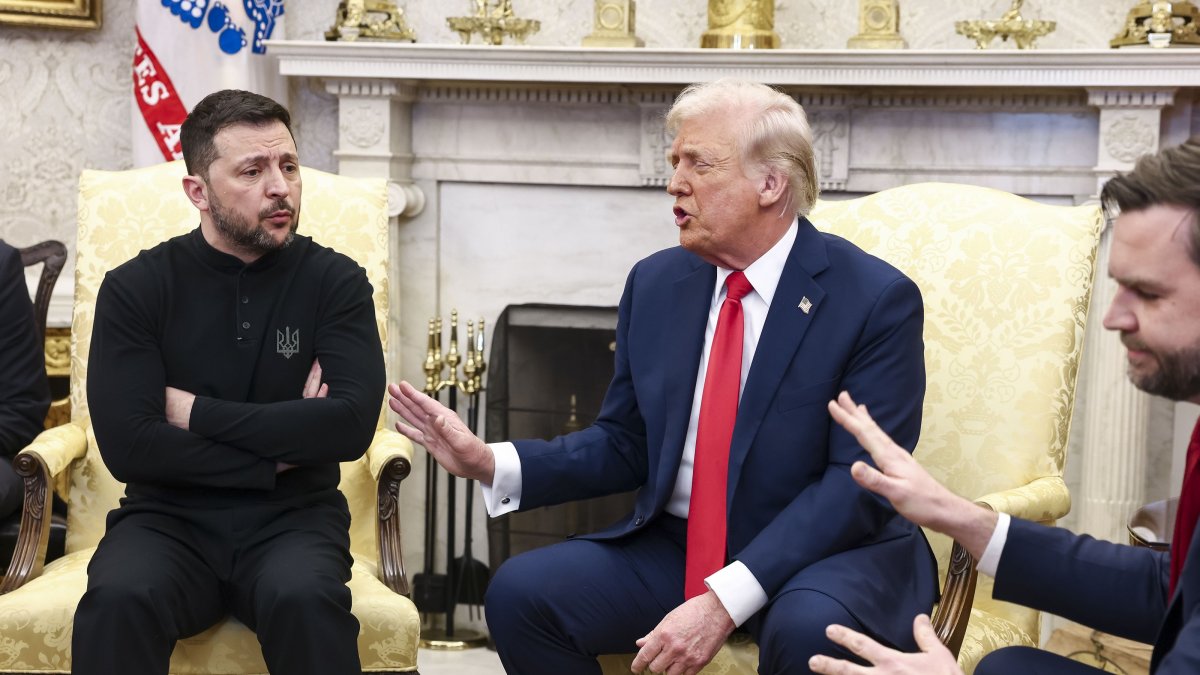

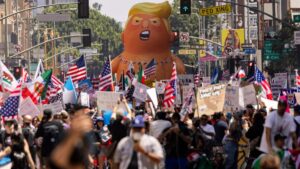

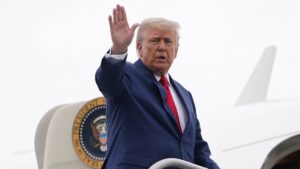
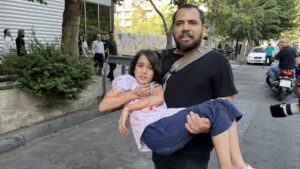
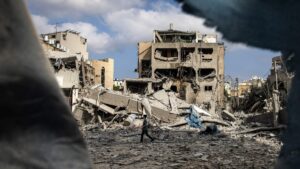


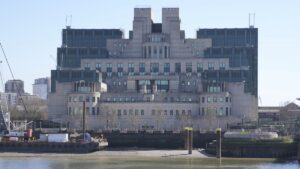
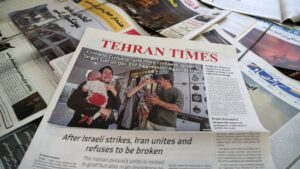
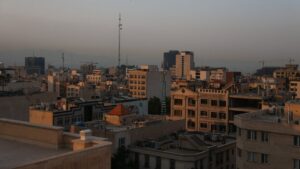
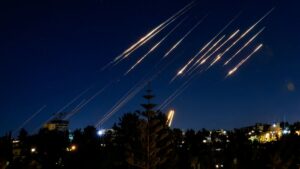
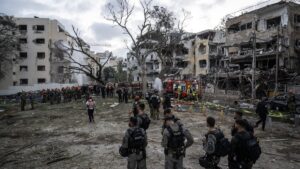
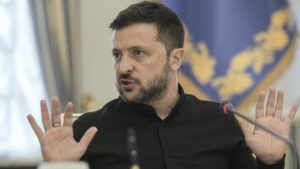

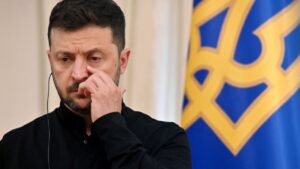
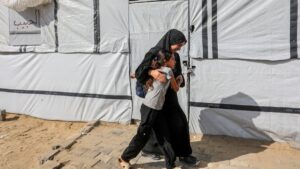


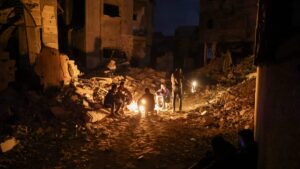
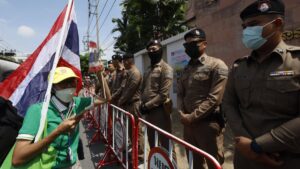
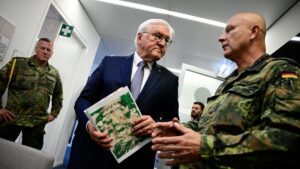
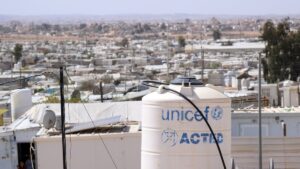

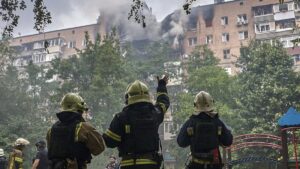

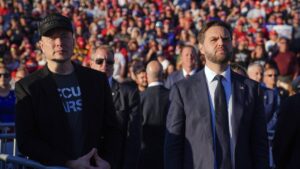
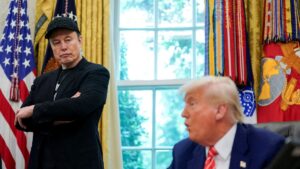
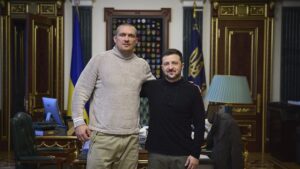

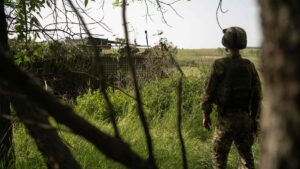
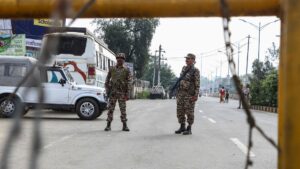


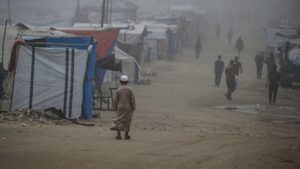



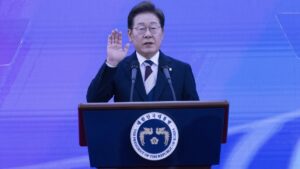
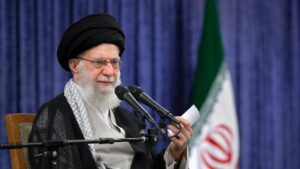
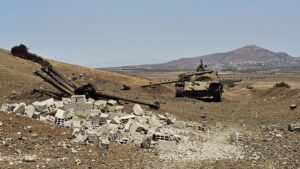
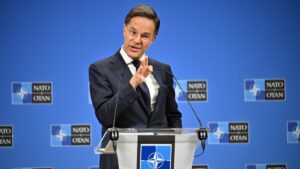
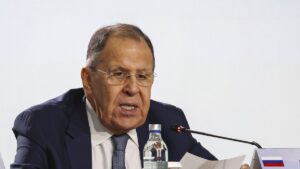

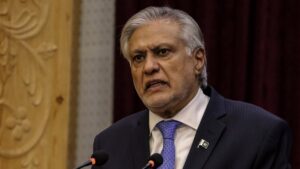
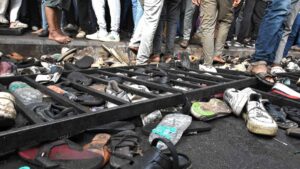

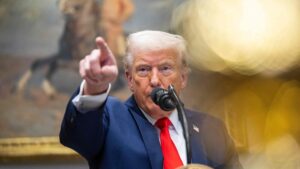
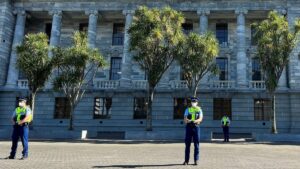

Be First to Comment